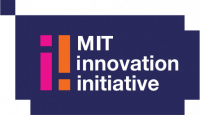Date:
Location:



The rapid evolution of threats to cyber-security, has led governments to the conclusion that the ability to control and defend cyberspace, demands a multi-stakeholder ecosystem approach in order to enhanced collaboration between the government and private actors such as universities, entrepreneurs, large corporations, and risk capital. The proposed conference is part of a joint research project, (Hebrew University, MIT) supported by the UK and Israeli Governments (INCD, UK-DCMS) whose aim is to bring together experts in the fields of cyber-security from all stakeholders, to explore the challenges and opportunities of a cyber-security innovation ecosystem approach and to generate “best practice” ideas. The conference aim to expand the scope of comparison between different local, national, regional, and international examples for Cyber Innovation Ecosystems, incorporating case-studies from non-western setting and none-state actors. The conference's deliverables will be a comparative research of Cyber Innovation Ecosystems in different international, regional, national and local settings and a proposal for a training program on “Developing Cyber Innovation Ecosystems”, and other actions intended to scale and impact national and privet sector's policy-makers.
Agenda:
16:00-16:10 – Opening Remarks (Watch here)
Amit Sheniak, The Hebrew University of Jerusalem
16:10-16:30 – EU and / or Germany Cybersecurity Innovation Ecosystem model (Presentation) (Watch here)
Tim H. Stuchtey, The Brandenburgisches Institut für Gesellschaft und Sicherheit (BIGS)
16:30-16:50 – Japan Cybersecurity Innovation Ecosystem Model
Ken Katayama, Microsoft-Japan
16:50-17:10 – Capacity building ecosystems (Watch here)
Chris Painter, GFCE
17:10-17:25 – Comparative study of cybersecurity innovation ecosystems (Presentation) (Watch here)
Katie Stebbins, Global EPIC
17:25-17:40 – Panel Discussion and Q&A
Amit Sheniak, The Hebrew University of Jerusalem
